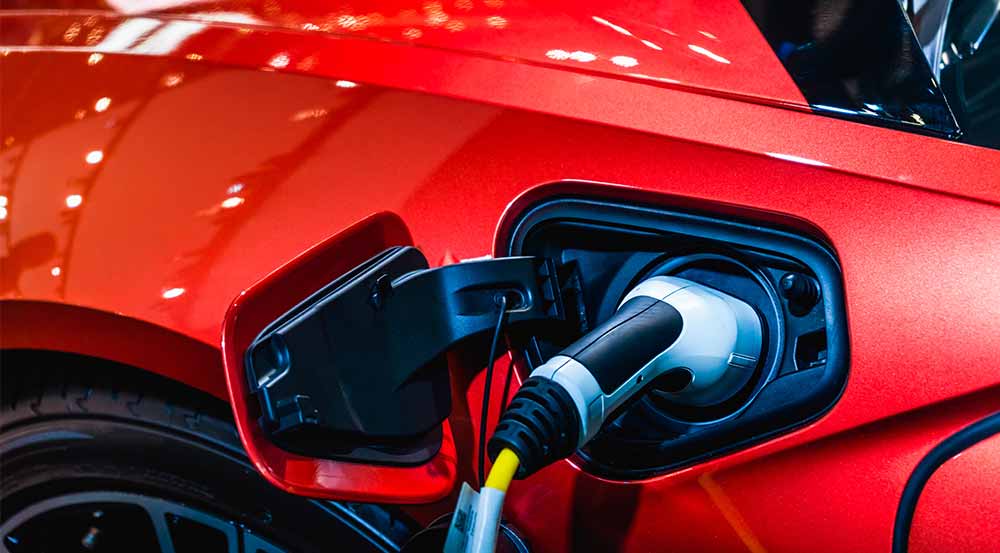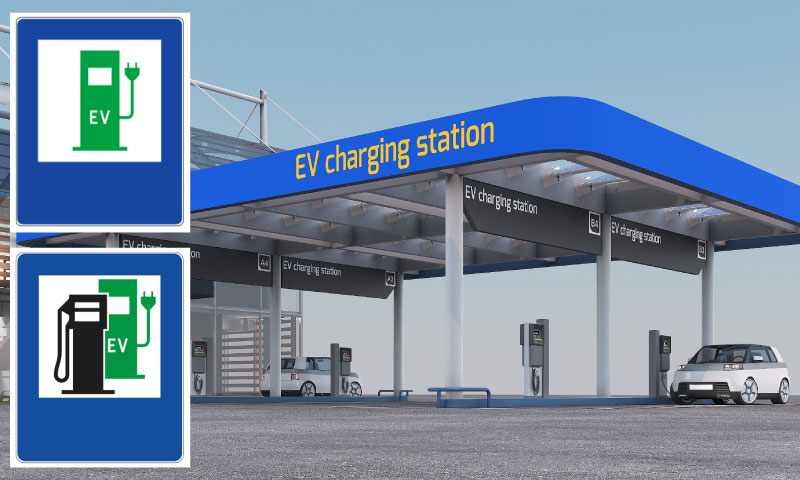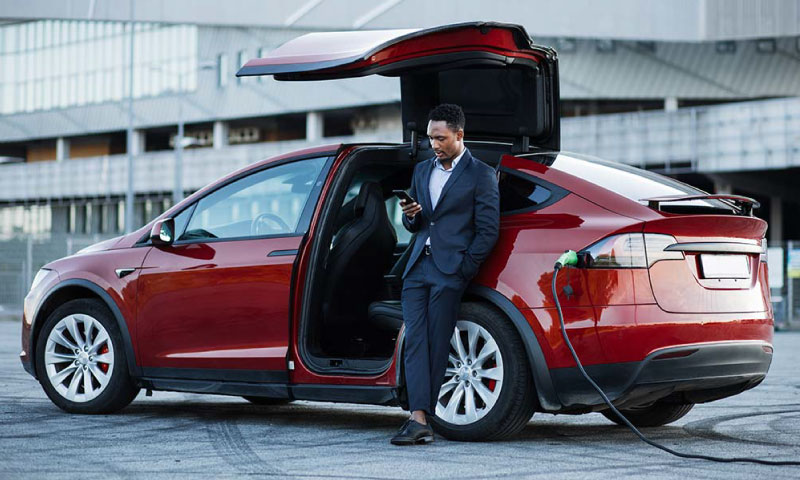Amendments to the Electromobility Act. Big changes in the electric vehicle charging market.
13 December 2021

Big changes in the electric vehicle charging market! On December 7, 2021 the President of Poland signed the Act of 2 December 2021 amending the Act on electromobility and alternative fuels and certain other acts. On the one hand, the Act implements EU directives by introducing many new regulations and legal instruments to serve the development of the electromobility market in Poland, and on the other hand, it provides new obligations and restrictions that may adversely affect the development of the sector. What specifically will change? Can the changes have a real impact on the development of electric vehicle market?
Conduits for electric cables for the installation of an electric car charging point in new buildings
The provisions of the amendment to the Electromobility Act of 2 December 2021 introduce significant changes in the design and construction of new residential buildings. This is because developers will be required to provide unit owners with the ability to install a charger next to their parking spaces by constructing special conduits for power cables. Residential buildings with more than 10 parking spaces associated with them will be designed and constructed to ensure that conduits for electrical wires and cables are installed at all parking spaces, allowing charging points to be installed at each parking space if located inside or adjacent to the building.
Non-residential buildings will be no different. They will be designed and constructed in such a way as to ensure the installation of at least one charging point and electrical ducts allowing for the installation of at least one charging point per five parking spaces if those spaces are located inside the building or adjacent to it and more than 10 parking spaces are connected to it.
The above requirements will also apply when buildings undergo reconstruction or renovation. These provisions will apply if the cost of the works is more than 25% of the value of the building, not including the value of the land on which the building and parking lot are located, and if the cost of installation of charging points and conduit infrastructure does not exceed 7% of the total cost of reconstruction or renovation.
New regulations will make it easier to install a private charger in multi-family residential buildings
The amendment to the Electromobility Act will make it easier for the owners of premises or persons who have another legal title to them (e.g. lessees) to install charging points at parking spaces assigned to these premises. In multi-family residential buildings where the number of independent residential premises exceeds three, the charging point will be installed and operated after obtaining consent of the community board, cooperative or property manager, issued upon application of the person holding a legal title to the premises in that building and the parking space for exclusive use.
The grant of consent for the installation of a charger will be subject to a positive expert opinion on the permissibility of the installation of charging points, prepared by a person holding a construction license in the field of installation of networks, installations and electrical and electroenergetic equipment to design without limitations. If the expert opinion indicates that it is not possible to install the charging point, the consent will be denied. On the other hand, if the expert opinion indicates that the installation of a charger for an electric car is possible only after amending the agreement on the connection of the building to the power network or performing a new installation or reconstruction of the existing electrical system, consent to install and operate the charging point may be granted only if the applicant undertakes to cover all costs of these activities.
Until now, granting consent for construction of the necessary electrical infrastructure and installation of a private charging station was an action exceeding ordinary management, which additionally required that the apartment owners adopt a resolution consenting to the action and granting the management board a power of attorney. The new regulations solve this problem by stating that in the case of a residential community, giving consent to the installation and operation of a charging station with a capacity of less than 11 kW constitutes an action of ordinary management.
Clean transport zones in every municipality
There has also been a significant change in the provisions of the Electromobility Act concerning the creation of clean transport zones, i.e. places where entry of vehicles other than zero-emission vehicles, i.e. vehicles powered by electricity, hydrogen or natural gas, is forbidden. The right to create such zones no longer concerns only municipalities with population over 100,000. Now every municipality will be entitled to establish such zones.
The amendment also extends the catalog of cases in which the ban on entry into the clean transport zones for conventional vehicles is not binding, stipulating that the municipality council, in the resolution establishing the clean transport zone, may establish additional subjective and objective exclusions from the ban on entry into the zone. The municipal council may also allow other vehicles to enter the clean transport zone between 9 AM and 5 PM for a period of no longer than 3 years from the date of establishing the clean transport zone, provided they pay a fee. The fee for entering the clean transport zone may not exceed PLN 2.50 per hour for a single payment or PLN 500 for a subscription fee for one month.
New obligations for public charging station operators and charging service providers
The amendment to the Electromobility Act changes the scope of obligations imposed on operators of public charging stations. Under the previous version of the act they were only required to enter into an agreement for the sale of electricity for the sole purpose of operating a public charging station. Now they will also be obliged to conclude such an agreement for the purposes of providing charging services by charging service providers, which at the same time means that the charging service providers at the given station are exempt from the obligation to conclude such an agreement.
New obligations include also the obligation of the operator of a public charging station and charging service provider to apply to the President of the Office of Technical Inspection for the so-called EIPA number, i.e. the individual identification code or to apply for recognition of the code given to them in another EU member state. The application has to be submitted before starting the activity as a public charging station operator or charging service provider. For assigning the EIPA number or for recognizing the code and maintaining it in the IT system the President of UDT will charge a monthly fee, which in case of the public charging station operator will be equal to the product of the fee rate of maximum 25 PLN and the number of its public charging stations, and in case of the charging service provider - equal to the fee rate of maximum 50 PLN.
The act in a sense also limits the circle of entities that can be operators of public charging stations. According to the new regulations, the operator of the power distribution system cannot be the operator of a public charging station, the owner of this station or the charging service provider. The DSO may remain the owner of a public-access charging station only if, in order to sell the charging station, it conducted an open, transparent and non-discriminatory auction, whose general conditions were approved by the President of the Energy Regulatory Office, and as a result of which no agreement for the sale of the station was concluded. The DSO may also remain the owner of a publicly available charging station if it takes steps to ensure that the operator of a station owned by the DSO fulfils its obligation to ensure the public availability of that station.
New entitlements of the President of the Office of Technical Inspection
President of UDT will have new competences in scope of the control of electric vehicles charging stations. According to the new regulations, the President of UDT will inspect the charging stations in case of getting information about any irregularities in their operation, in particular when a threat to the safety of the users is suspected or in case of an accident connected with their operation, as well as in case of their operation without carrying out the tests required by the Act or despite a decision on suspending their operation.
The inspection will cover, respectively, compliance of the charging station with the technical requirements specified in executive regulations issued on the basis of the provisions of the Electromobility Act. The factual state will be determined in particular on the basis of the results of technical inspections, visual inspection, collected documentation, including photographs, written explanations and statements. If the inspection reveals that the charging station does not meet the technical requirements, the President of UDT will issue a decision to suspend its operation.
Other changes
New regulations also introduce minor changes, such as clarification of some definitions, including electric vehicle charging stations. The act also specifies what exactly is meant by the charging service. According to the new regulations it means charging and ensuring the possibility of using the charging station infrastructure for the purposes of charging, including for the purposes of registration of an electric or hybrid vehicle user, authorization of the charging session, keeping the records of information about the charging session, making the information about the charging session available to the user, billing and collecting payments, issuing sales documents and handling requests and complaints.
The changes will also include provisions of certain other laws. For example, the provisions of the Energy Law regarding priority of connection to the power grid have been modified. This priority will apply not only to the charging infrastructure for public road transport, but also to generally available charging stations including only charging points with high power output, i.e. greater than 22 kW. In the event that it is not possible to connect such a public charging station to the grid, the energy company shall, within 14 days for connection group IV and V, and within 60 days for connection group III, inform in writing the entity applying for connection and indicate the maximum available connection capacity at the location specified in the application.
EV365 professional charging stations
The amendment of 2 December 2021 to the Act on Electromobility and Alternative Fuels and certain other acts introduces numerous changes to the EV charging market. If you are planning to invest in charging stations, it's worth getting familiar with them. Bet on proven solutions. Our team will explain you in details the newest changes introduced by regulations and will help you to choose the right device for your needs. EV365 will also help you to build a detailed business plan showing how you can effectively earn money from charging electric vehicles, how to manage charging stations and how to settle accounts with charging station users.
Source: Own study

New road signs for EV charging stations
From 2 December 2021, the provisions of the Regulation of the Ministers of Infrastructure and Interior and Administration of 12 October 2021 amending the regulation on road signs and signals came into force.

Subsidies for leasing electric vehicles under the "Mój elektryk" program. What is the amount? Who is eligible?
Bank Ochrony Środowiska S.A. signed first agreements with financing companies, thanks to which customers of them will soon receive subsidies to payments for leasing electric vehicles.

Subsidies for the purchase of electric vehicles for companies. How much will they amount to?
The National Fund for Environmental Protection and Water Management has announced the launch of the last component of the "Mój Elektryk" program, i.e. subsidies for the purchase of electric vehicles by entrepreneurs.


 Poland
Poland